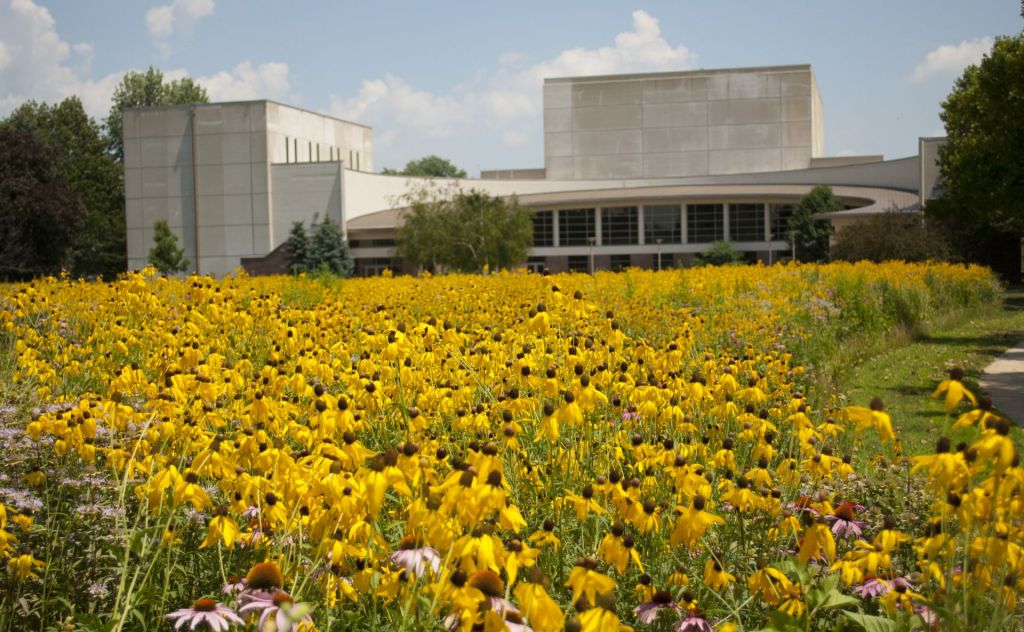
Large areas of the college campus lawn are being transformed from traditional lawn to native prairie laboratory spaces. For almost a year, Goshen College has been planning and organizing this effort, and on May 2 the process began. The change required that the existing turf be killed and new seeds be planted. Now the slow waiting process begins as many different types of native seeds germinate and become established.
The planting was completed in mid-May and today the common oats, which were planted as a rapid-growing cover-crop have sprouted up. Closer examination will show that several of the over 40 varieties of native plants are slowing showing form. Some of these plants will become established quite quickly and mature yet this year. Other plants will take many years to become established. Unlike a traditional lawn, native landscaping develops slowly and is constantly changing.
There will be several different types of plantings on campus. Low profile prairie grasses (3-4 feet tall) and perennial flowers have been planted along the railroad tracks, in the yard north of Miller/Kratz, the lawn west of the Music Center and the inner-field area of the Eigsti Track. A large area in the southeast corner of the athletic fields will be taller prairie grasses growing eight feet tall. The lawn along 12th Street and the area north of the Music Center has been planted in a variety of fescue grasses that will create a soft low-profile carpet of no-mow lawn that, when established, will provide an attractive low-maintenance alternative to regular turf grass. In order to provide a more immediate feature, approximately 250 plugs of various wildflowers were planted along the sidewalk between the main campus and the Music Center.
Approximately 12 acres — or nearly 20%! — of the campus lawn is being converted in this initiative.
Some of the advantages of this project include:
- Reduction in the use of chemical herbicides and fertilizer
- Reduction in mowing, saving both gas, wear and tear of equipment and labor
- Less irrigation
- Less surface water runoff through improved infiltration of the soil
- Improved air quality with more CO2 sequestration and reduced emissions from lawn mowing
- Improved habitat for birds, small mammals, butterflies and other insects
All planting and maintenance for the first two years will be performed by Cardno JFNew, an area company located in Walkerton, Ind., with a national reputation for providing full service ecological solutions.
Enjoy the aerial photos taken on May 31 of campus which show how much lawn has been converted.
— Glenn Gilbert, Goshen College’s Sustainability Coordinator




